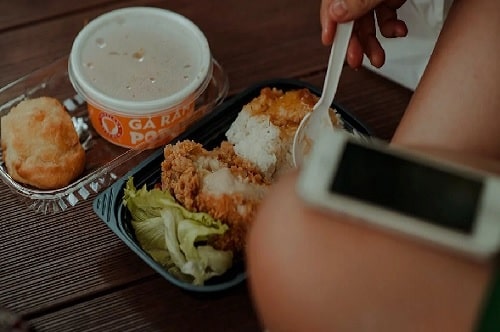“Shall we order something to eat?”
It is probably one of the most uttered phrases in the last two years in homes around the world.
While takeaway food used to be the preserve of a few establishments with very distinctive characteristics (and a business model that was alien to traditional catering), today food delivery is practically the norm. And managing payments is a challenge that PAYbyCALLcan help solve with ease.
The leap to home delivery, without a network?
The recent health crisis of 2020-2021 caused by COVID-19, with the consequent closure of many public access establishments, forced many hospitality and catering businesses to renew or die, and they looked to take-out or home delivery as an escape route. But they soon discovered that it wasn’t that simple….
Do we have the right packaging? What about the delivery infrastructure? And how do we let people know that we deliver? Taking the order over the phone and entering it in the POS is a torture, being on a myriad of platforms as well (apart from the commissions they set); and watch out for inventory synchronization issues, and the tax issue, and…
Oh, and there is the issue of charging, of course. Each system has its drawbacks: cash at the customer’s door has its obvious risks; setting up payment gateways can be costly, technically and economically speaking; on the other hand, many people do not want to give their bank details to just any app. (and rightly so).
“Can I pay by card… over the phone?”
Of course; of course, in the age of plastic money. And, in the age of the digital economy, even more so. However, there are a number of PCI (Payment Card Industry) security standards applicable to financial institutions, service providers and merchants.

The PCI DSS security standard is aimed at minimizing the chances of fraud or misuse of credit/debit cards by automating the payment, i.e. enabling a telephone card payment system that is incomparably more secure than an app or a human agent. This is achieved by eliminating the human factor and the storage of personal data.
Following this pattern, the agent who answers the customer’s telephone calls refers the customer, at the time of payment, to an automated service that requests the necessary data and sends it to the bank without storing it. A fast, reliable process that complies with the security and data protection policies that are (and will be) increasingly important.
Is the PCI DSS within the reach of restaurant and hospitality SMEs?
Not only is it within your reach, but every company that deals with cards and customer banking data should adhere to this standard.not only because of the risks to which the company and its customers are exposed, but also because of the risks to which the company and its customers are exposed, but also because of the risks to which the company and its customers are exposed. fines for noncompliance which companies such as VISA, MasterCard, American Express, etc. provide for.
However, being realistic and leaving aside the good practices that we can all put into practice, there is a more technical part in terms of security facility assessment, compliance declarations, authorized security consulting, etc., which most small businesses are not prepared to take on internally.
The solution: PAYbyCALL. An agile , highly customizable service that adapts to the peculiarities of each business model and easily integrates with software, platforms and web services. And a way for your customer to know in advance that his bank details are safe, and that the only surprise he will get will be the pleasant aroma of his order when he opens the package…
